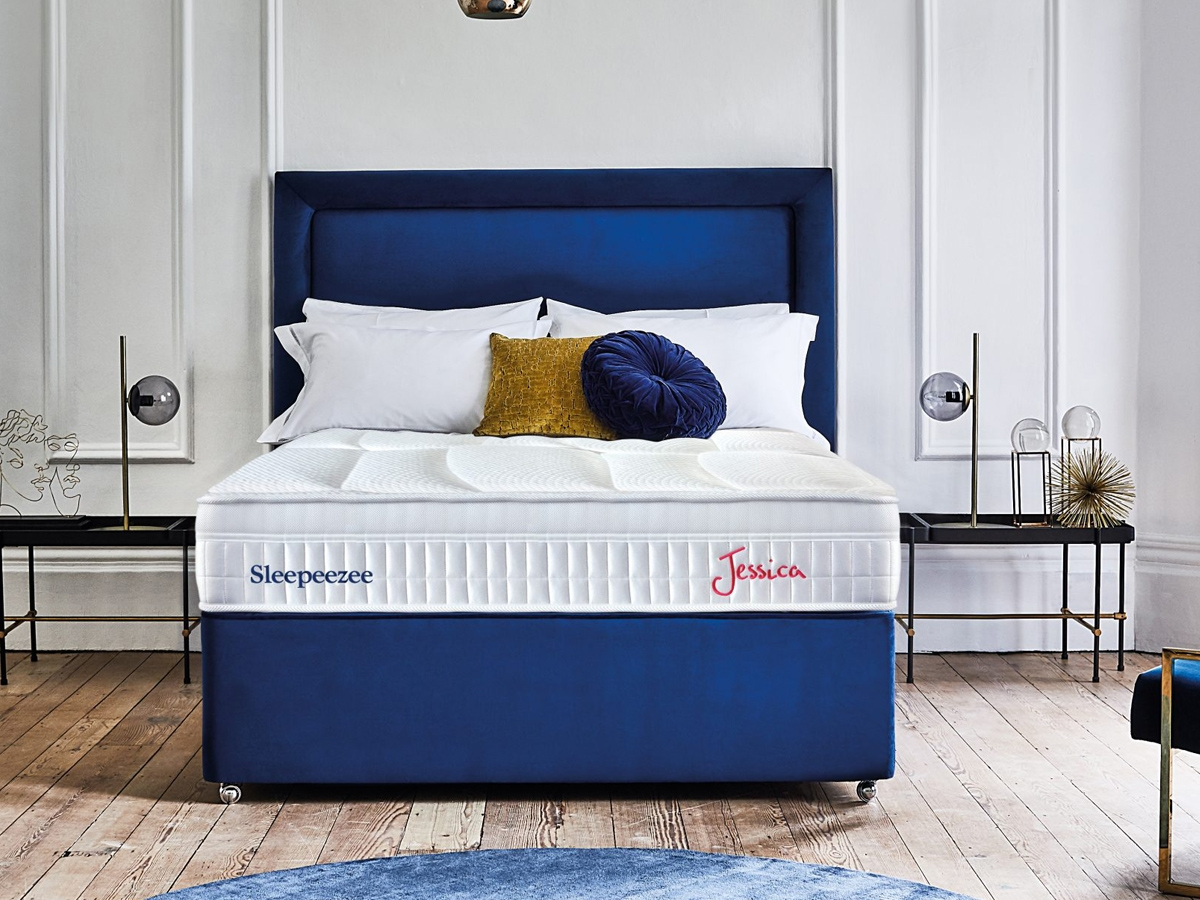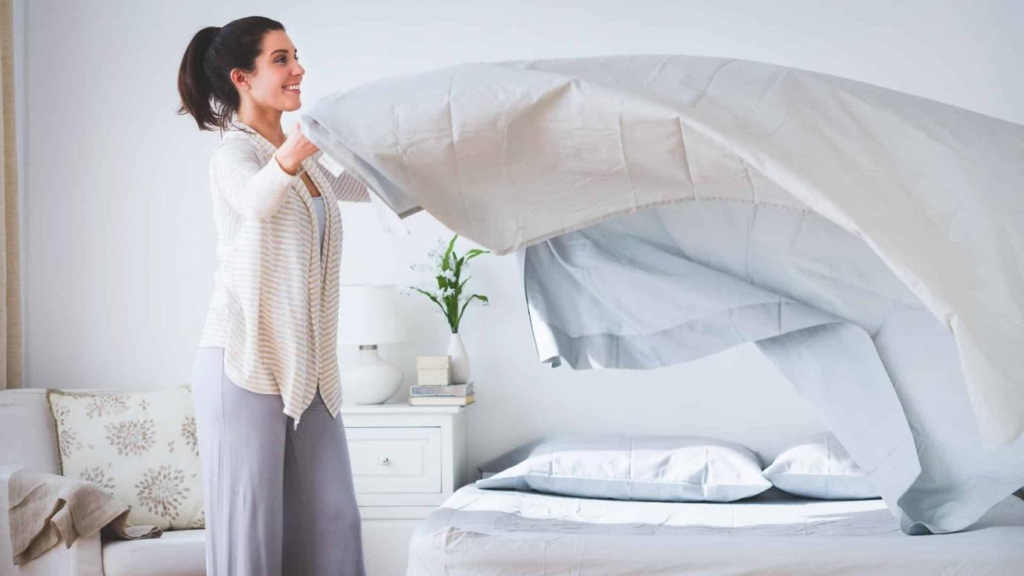Your bedroom should be a sanctuary for sleep and relaxation, but indoor air quality, allergens, and hygiene can make it less healthy than you think.
A healthier bedroom is good for your sleep and health. The good news is that with a few changes to your bedroom environment and maintenance routine, you can create a healthier space that promotes better sleep and well-being.
Join us below for our top bedroom health tips.
Filter and purify the air
Cleaner air helps you breathe easier during sleep, reduces allergens, and reduces exposure to VOCs, chemicals, and gases from traffic and industrial activities.
You can filter your bedroom air with an electronic air purifier with a HEPA and active carbon filter. HEPA filters remove dust and other allergens, such as pet dander, while carbon filters filter out smoke, fumes, and other chemicals.
Both filters are necessary to transform your bedroom’s air quality, and a unit that treats around 45 m2 is needed if you have a mid-sized bedroom.
Look for an air purifier with a sleep mode around 20 Db. This will create gentle noise that could help you drift off.
Anti-allergy mattress
If you have asthma, breathing difficulties, or allergies, an anti-allergy mattress will help to create a healthier sleep surface.
Anti-allergy mattresses have a special treatment applied at the factory that combats the development of allergens. Some treatments include insecticides to stop dust mites from spreading.
Pictured: Sleepeezee Jessica 1800 Pocket Gel Mattress, The Which? approved mattress offers the perfect blend of technologies and is hypoallergenic for a cleaner, healthier sleep.

Another crucial feature is hypoallergenic materials – these materials, such as polyester, are unlikely to trigger allergies.
Add plants for mental wellness
Plants add life to your bedroom and create a more relaxing environment. Studies show that being around nature, even with indoor plants, can reduce stress and anxiety levels.
Choose low-maintenance plants like snake plants or peace lilies that thrive in bedroom conditions. Position them on windowsills or bedside tables where you can see them from your bed for maximum psychological benefit.
Keep 2-3 plants in a medium-sized bedroom to create a calming atmosphere without overcrowding.
Wash your bedding weekly

Weekly bedding changes remove dead skin cells, dust mites, and bacteria that accumulate in your sheets and pillowcases.
Wash bedding at 60°C to kill dust mites and bacteria effectively. Use non-bio detergent if you have sensitive skin, and avoid fabric softeners, which can trap allergens.
Remember, pillows and duvets should be washed every 3-6 months, following the care label instructions, to maintain a hygienic sleep environment.
Clean your mattress monthly
Regular mattress cleaning prevents the buildup of dust, dead skin cells, and allergens that can affect your health.
Sprinkle bicarbonate of soda over your mattress and leave it for several hours to absorb moisture and odours. Use the upholstery attachment on your vacuum cleaner to remove the powder and trapped particles thoroughly.
Pay special attention to seams and tufts where debris collects. Flip or rotate your mattress during cleaning to even out wear and tear.
Limit screen time

Spending too much time on your smartphone, tablet, and computer can damage your sleep schedule and quality.
And it isn’t just the blue light from your screen that can keep you awake – you can get addicted to social media and shopping apps, making you scroll incessantly for new content that never quite scratches your satisfaction itch.
If you must use devices, enable blue light filters or night mode and charge your phone away from your bed to avoid the temptation of late-night scrolling.
Even better, turn your phone off at night and use a separate alarm clock instead, or get a smartwatch that has a gentle alarm feature that vibrates.
